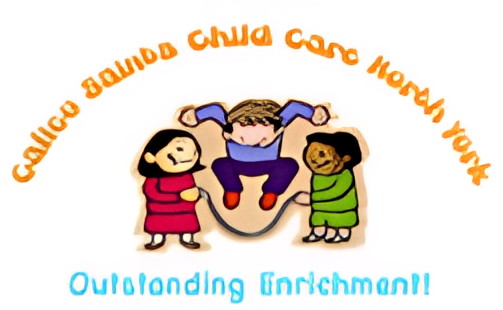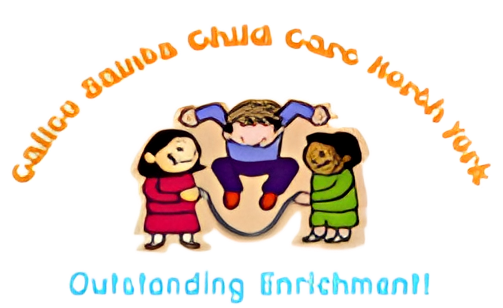Introduction to the Impact of Nutrition on Childcare Education
Good nutrition isn’t just about keeping kids healthy. It’s a key player in their ability to learn, grow, and thrive in an educational setting. Think of food as the fuel that powers your child’s brain and body throughout the day. A child’s diet can significantly influence their cognitive development, attention span, and even behavior in the classroom. Research has consistently shown that kids who eat balanced, nutritious meals are more likely to participate, retain information, and perform better academically. This isn’t surprising when you consider that certain nutrients directly support brain functions involved in learning. For example, omega-3 fatty acids found in fish are essential for brain health and cognitive skills, while iron and vitamins from fruits and vegetables contribute to better concentration and memory. So, as we dive deeper into how nutrition shapes childcare education outcomes, remember that what goes on your kid’s plate plays a crucial role in their educational journey.
Understanding Childcare Education: A Brief Overview
Childcare education isn’t just about ABCs and 123s. It’s about shaping young minds to be ready for the world. Nutrition plays a big role in this process. Think of it as fuel for a car. Just as a car runs better with the right fuel, a child’s brain develops better with the right nutrients. Good nutrition boosts brain function, helps kids focus, and can even affect behavior and mood. When kids eat well, they’re more likely to be engaged in the classroom, have better memory, and even score higher on tests. In short, the food they eat doesn’t just affect their physical health but their ability to learn and absorb information too. So, when we talk about enhancing childcare education outcomes, we’re talking about making sure every child has access to the nutrition they need to thrive both in and out of the classroom.
The Essential Nutrients for Children’s Cognitive Development
For kids to hit their learning strides, they need the right fuel. This means their diets should be packed with essential nutrients that boost cognitive development. Let’s break it down. First up, omega-3 fatty acids. You’ll find these brain boosters in fish like salmon and in flaxseeds. Omega-3s are critical for brain function and growth. Next, iron. It’s key for developing brains, helping with concentration and energy. Lean meats, beans, and spinach are great sources. Don’t forget about zinc. It aids memory and thinking skills. You can get zinc from meat, dairy, and nuts. For strong bones and teeth, vitamin D is a must, which the body gets from sunlight and foods like eggs and fortified milk. Lastly, antioxidants from colorful fruits and vegetables protect kids’ brains from damage. Together, these nutrients help sharpen focus, enhance memory, and support overall brain health, paving the way for better learning.
Linking Nutrition and Learning: How Food Affects Focus and Memory
Ever notice how hard it is to concentrate on an empty stomach? It’s not just about being hungry. What kids eat directly influences their focus and memory, two pillars for successful learning. Nutrition and brain function are closely connected. Foods rich in omega-3 fatty acids, like fish, are brain boosters enhancing memory and focus. Whole grains release glucose slowly, providing steady energy to keep kids attentive throughout the day. Iron-rich foods, such as spinach, improve cognitive abilities and concentration by ensuring a healthy blood flow. Meanwhile, antioxidants found in berries protect brain cells, enhancing memory function. In simple terms, good food equals better learning. By ensuring kids get these nutrients, we can help them stay sharp and ready to tackle any educational challenge.
Practical Nutritional Tips for Enhancing Childcare Education Outcomes
To boost childcare education outcomes, focus on simple yet effective nutritional strategies. First, ensure kids start their day with a balanced breakfast. This could mean whole grains, fruits, and some protein to fuel their brains and bodies. Second, incorporate brain foods into their diet. Foods rich in omega-3 fatty acids, like fish, nuts, and seeds, support brain health and can improve concentration. Third, hydration is crucial. Encourage kids to drink plenty of water throughout the day to keep their minds alert. Fourth, limit sugar intake. Too much sugar can lead to energy crashes, affecting their ability to focus and learn. Lastly, make sure meals and snacks are regular and balanced. Consistency in their diet helps maintain steady energy levels, supporting better learning and participation. Simple shifts in nutritional habits can make a big difference in educational outcomes for children.
Overcoming the Challenges: Addressing Poor Nutrition in Early Development
Addressing poor nutrition in early development is key to enhancing childcare education outcomes. Kids facing bad nutrition might struggle more not just in growing strong but also in learning stuff. Think of it like this: a young plant needs the right mix of soil, water, and sunlight to grow. Kids are similar but they need healthy foods to grow and learn. The challenge? Not all families can easily get or afford these healthy foods. But here’s the deal: everyone can play a part in making things better. Schools can introduce programs that offer healthy meals and snacks. Communities can set up places where families get fresh produce at good prices. Parents and caregivers, too, have a role by choosing healthier food options whenever possible and teaching kids about good eating habits. It’s all about small steps toward big changes. Together, tackling poor nutrition can pave the way for brighter futures in education for all kids.
Case Studies: Successful Nutrition Programs in Educational Settings
Across the globe, schools have realized food isn’t just fuel – it’s a tool for better learning. Take Japan’s Shokuiku program, for example. It’s not just about eating healthy; it’s comprehensive education on nutrition. Kids learn where their food comes from, how it’s made, and why a balanced meal is important. And guess what? Since its implementation, there’s been a noticeable uptick in students’ concentration and overall academic performance. Then, there’s the Farm to School program in the United States. Schools partner with local farms to supply fresh produce for school meals. This initiative doesn’t just improve the quality of food on the students’ plates; it also educates them about local agriculture and the importance of supporting local farmers. Reports show that students participating in this program eat more fruits and vegetables and are more willing to try new, healthy foods. These case studies prove that when schools invest in educating students about nutrition and providing them with high-quality meals, it pays off in their academic and personal growth.
Engaging Parents and Caregivers: Strategies for Improving Home Nutrition
Getting parents and caregivers on board with good nutrition can turn the tide in a child’s education and overall well-being. It’s not just about telling them what’s right; it’s about making them part of the journey. First up, make it clear why nutrition matters. Explain how a healthy diet boosts brain power, energy levels, and even a child’s mood. This isn’t just about eating vegetables; it’s about fueling success.
Next, practical tips work wonders. Share easy, quick recipes that don’t break the bank. Parents are more likely to try new things if they’re simple and don’t require exotic ingredients. Also, involve kids in meal planning and preparation. It’s a win-win. Kids learn about healthy eating, and it becomes a family activity.
Lastly, communication is key. Regular updates on how nutrition impacts childcare education outcomes can motivate parents. Whether it’s through newsletters, workshops, or social media, keep the information flowing. Remember, no guilt trips. Encourage, don’t criticize. Small changes can lead to big results. Let’s get everyone on the nutrition train and watch how it boosts childcare education outcomes.
The Role of Schools and Childcare Centers in Providing Balanced Meals
Schools and childcare centers play a crucial role in shaping kids’ eating habits. They’re where children learn what and how to eat outside of the home. These institutions can turn meal times into powerful learning moments. By offering balanced meals, schools and childcare centers teach kids about good nutrition firsthand. It’s not just about putting food on the plate; it’s about educating children on the importance of fruits, vegetables, whole grains, and lean proteins. This approach helps children understand the value of eating a variety of foods to maintain their health. When children are served a range of nutritious meals, it sets the foundation for healthy eating habits that can last a lifetime. Plus, well-nourished kids are more likely to perform better academically, as they can concentrate longer and remember more of what they learn. In a nutshell, providing balanced meals isn’t just good for children’s health; it’s a stepping stone to enhancing their learning outcomes in school and beyond.
Conclusion: The Future of Nutrition in Childcare Education
The future of nutrition in childcare education holds promising prospects for enhancing children’s learning and development. As awareness grows, we see an evolving focus on integrating well-balanced diets directly into educational settings. This not only supports physical growth but also cognitive development, setting kids on a path towards lifelong health and learning successes. The trajectory points towards more schools adopting programs that include nutrition education as a core part of the curriculum, fostering an environment where healthy eating habits are not just taught but lived by example. Moreover, technology and innovation are paving the way for personalized nutrition plans catering to individual health needs, further boosting learning outcomes. In essence, the intertwining of nutrition and education showcases a holistic approach to childcare, promising a generation of healthier, more educated young minds ready to tackle the future.



